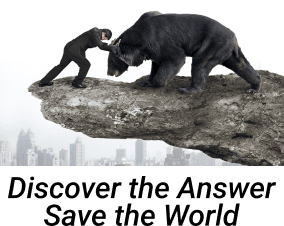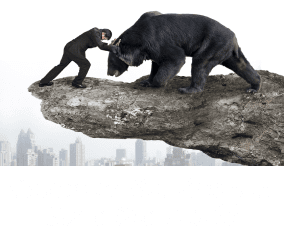
Words Hurt
“Stick and stones will break my bones, but words will never hurt me.” That adage is said to be first recorded in print by Alexander William Kinglake in his Eothen written during 1830, published in London during 1844. (Spot to click for source) Since then, humans have been psychologically juxtaposing words against physical harm as worse than the breaking of bones. The adage would now be, “Sticks and stone will break my bones, but words hurt more.” This qualitative distinction is a psychological aberration in the minds of millions. It is psychosis. Being unable to qualify physical harm as worse than hurt feelings is at least a mild insanity.
Feelings are very important. Denial of feelings may result in physical harm. There are sources that describe denied feelings as the cause of most suffering and death among the human species. (sources withheld intentionally to protect the sensitive) This article is not an effort to detract from the importance of human feelings. Rather, it is intended to provide protection and healing for them. Feelings are likely to become known as far more important to reality in general than physical harm.
Resisting the urge to “nail-down” a precise definition and meaning to the word “feelings” is very difficult. It would require a text-book size and character writing. It would become very complicated and far too convoluted. Preempting human reactions is also difficult to resist. Let it be taken as a given that you, the reader knows what feelings are, that you can distinguish between physical feelings and the feelings that encompasses such things as emotions with all the variations. Trouble is afoot. It is not a good time to dive into the infinite pool of language usage and the human complexity that combines all of reality into a limited vision and comprehension. It is the limited vision and comprehension that is the subject of importance here.
Nearly everyone who even might read these words will be certain that everyone else is a relatively new being. In other words: they will be so sure that there is no human anywhere who is over about 150 years old. This writer is aware of those who do not conform to this broad opinion, but exceptions do not alter the fact that nearly everyone is not over 150 years old, and is, therefore, limited in experience to something less than that advanced age. Experience is important.
The debate over “nature” and “nurture” is older than nearly everyone. It has been put to rest a bit by an obvious logic that says it is both that make a person. Here is a good article you can check out if you’re interested: here Experience comes under the “nurture” category. If people are not even over 150 years old, they are not very experienced, arguably and relatively. At least they cannot testify to what happened before they were born. So, we resort to other ways and means of becoming conscious of the past.
You might, like me, wonder how Native Americans came to be called, “redskins.” I thought a lot about that. Today I searched the internet and found this article about it. It is interesting to me. People have been categorized using a ranking that has no basis in fact. Native Americans do not have red skin. Chinese people don’t have yellow skin. Words get adopted and experience passes then down through time. Just like happened to the word “Indian” that got stuck to the Native Americans due to an ignorance of the global map. This phenomenon of human behavior is old and is demonstrated today in many permutations.
Pejoratives are a very old human linguistic expression. They are a reflection of many things in the psychology of a human. Let’s not debate their use in other species right now. When someone uses a pejorative due to sincere feelings, the word they choose is not the problem. The feeling is. What sense does it make to fight the word? What sense does it make to expand that fight? What, then, results from the objection to and the efforts against the word? That is the subject of importance in human interaction.
There is not word ever used in any language ever that cannot be turned into a pejorative. Language is that way. It is malleable and morphs constantly. When a person takes aim at a word, they might as well be trying to capture unicorns. It doesn’t make sense. It is counterproductive, too. Words do not become issues until someone makes then an issue. That is why the old adage about stick, stone, and words was invented. Someone understood what I am trying to explain here. How did something realized that long ago get so horrendously lost?
It is crazy in my opinion to take issue with words. Doing so only makes them more indelible. It plants them more permanently. Shouldn’t words be subject to efforts to improve communications instead of being reinforced as pejoratives and given more power to hurt feelings? That is what happens. If someone works enough, they can get the word “love” to mean “sex.” Does that “hit home.” See? Words are just words. They change and they become sticky to meanings only when effort is applied. Accidental or intentional effort, it matters which, but he result is the same.
When the warrior wants to “divide and conquer,” what can you think of that would be an easier weapon to deploy for that purpose? In today’s instant communication era, it is very easy to confound language and muster resentment, hate, hurt feelings, and violence by simply manipulating words. It is so easy it has morphed into similar human reactions to things like statures, memorials, and other things that are far less amenable to change than words.
Peace must be something the people do not want. Oh, you will find it very difficult to find someone who will admit that they don’t want peace, especially world-peace. Psychology jumps in again. People who don’t live past 150 years may not get enough experience to improve their consciousness enough to assist the advent of world peace. By the expression of their personal psychology they do things that prevent world-peace and become confounded over its absence. Making a word offensive when the person using it harbors none of the offensive psychology or judgment attributed to the word defeats the birth of peace. It, instead, creates the opposite of peace and it does that by the direct volition of the person doing it. Is that too complicated or something to comprehend? Are my thoughts wrong? I think you nor anyone else can prove them to be wrong or even pejorative. If you say a leaf is green, is “green” a pejorative? It is if you want it to be, but that makes you pejorative and shows me your deeper psychology better than any interpretation of an ink blot.
I am not happy about the way people behave. That is a generalization, for sure. It is not an accident. I mean that I do not like what people do in the aggregate. People do beautiful things that I like, but not nearly enough to aggregate the things they do into something I am happy about. Most of you think what you do, think, and believe is your business and none of mine. Divide and conquer. Remember that? When you divide yourself from everyone else by claiming sole rights to your actions, thoughts, and believe, that is exactly what you are doing. It is pure sophistry that has been “nurtured” into you just as it was nurtured into your ancestors so profoundly it almost qualifies as “nature.” It is wrong, though.
We are all in this together. It is not possible for me to care less that someone might not agree. Look! Let me put it this way:
1. This is my world.
2. You are in my world.
3. Everything you do, you do in my world.
4. Everything you think, do, feel, or anything else makes my world different.
You can get upset over my claim that this is my world. I know you. I understand. The complexity of your psychological response to such a statement is way too well known to me. I’ve already told you I don’t like the way people behave. That is just one more of those things I don’t like. There are millions. You may think there is no God, soul, spirit, or anything like them, but those you who do are very familiar with the fact that God has been trying to get your ancestors to behave better for a long time. Do you doubt such attempts are still happening today? I don’t. I seem to be in good company. I know that offends the atheists. They like being offended.
One chooses to be offended. It may be subconscious or conscious. It makes little difference. If I desire to offend someone, I usually tell then ahead of time. I don’t want doubts to crop up. If I don’t want to offend someone and they feel offended anyway, that is their choice. Lack of control, wisdom shortage, ignorance, and many other things are involved, but none negate the fact of choice. It just adds to the number of things that aggregate my dislike of human behavior. “Take offense.” That is the term I want spread about.
People who take offense are taking what they want. In that sense, I am glad for them to be offended. Getting what we want is far too rare. Too bad what some get doesn’t feel good to them and they don’t like it. Remember the joke; the guy says it hurts with I raise my arm and the doctor says don’t raise your arm then. I will be the doctor here. Don’t take offense if you don’t like being offended. The choice of words is yours. It is mine, too. You don’t get to tell me which words to choose and I don’t get to tell you which words to choose. If we want to communicate, we only need agreement. You don’t get to tell me what to agree to. The same goes for you. Agreement does not exist when forced. The choice of words and other things is telling. It tells many things, but it does not always tell about some disdain, judgment, angst, or other such thing in the user. When those things are part of someone’s psychology or part of their opinions, words can reveal them, but habit or “nurture” usually has a lot of influence on the choice of words. In other words, they are not always source in something pejorative or vituperative. The important part is what a person thinks, feels, and does.
Many things bear on behavior. People are thought to have only recently historically to have become aware of the mechanisms of human behavior and the role in them of the mind, the heart, and other things. Remember savagery? What anyone does, even in their minds, affects the whole. A drop of water in the ocean changes the volume of water in the ocean. I am sort of stuck with this world, including the oceans, at least currently. It appears that you are too. That means that everything anyone does, thinks, feels, or whatever else makes the world we are stuck with different accordingly and proportionately. So, how can anything be the sole right or business of any single person. Private thoughts may be kept private, but they still change the world. So, sue me. I want the world to be more to my liking. The best we can do is agree. The worst we can do is disagree. Which of those two do you think dominates? That question is making me laugh. Pandora’s box has been thrown open.
Can we agree on one simple thing? Sticks and stones do damage when applied to that purpose intentionally or accidentally. Words used to offend hurt feelings. Words not used to offend don’t. Let me ask you this: Is offense taken over words not objection to human behavior? That would make you like me. We don’t like human behavior. Maybe we don’t agree that we don’t like the aggregate of human behavior, but it is a starting point for greater agreement.
I know you are going to want to sue me, but I want us all to agree. I want agreement on all things. That is the purpose of this site. You can think what you will about the idea of everyone agreeing on everything. I have vast experiences with people’s thoughts about it. I have been speaking with them about it for over fifty years. It is the purpose of this article.
Troubles are occurring. Words are leading to physical injury, death, damage, and destruction. It is human behavior that does it. Not words. People react to words and reactions can be thought to be insane. Opinions vary equal to the population today, in the past, but hopefully not in the future. There are sufficient places for differences of opinion. Facts is not one of them. Right place. That is the concept to grasp and incorporate into human behavior.

